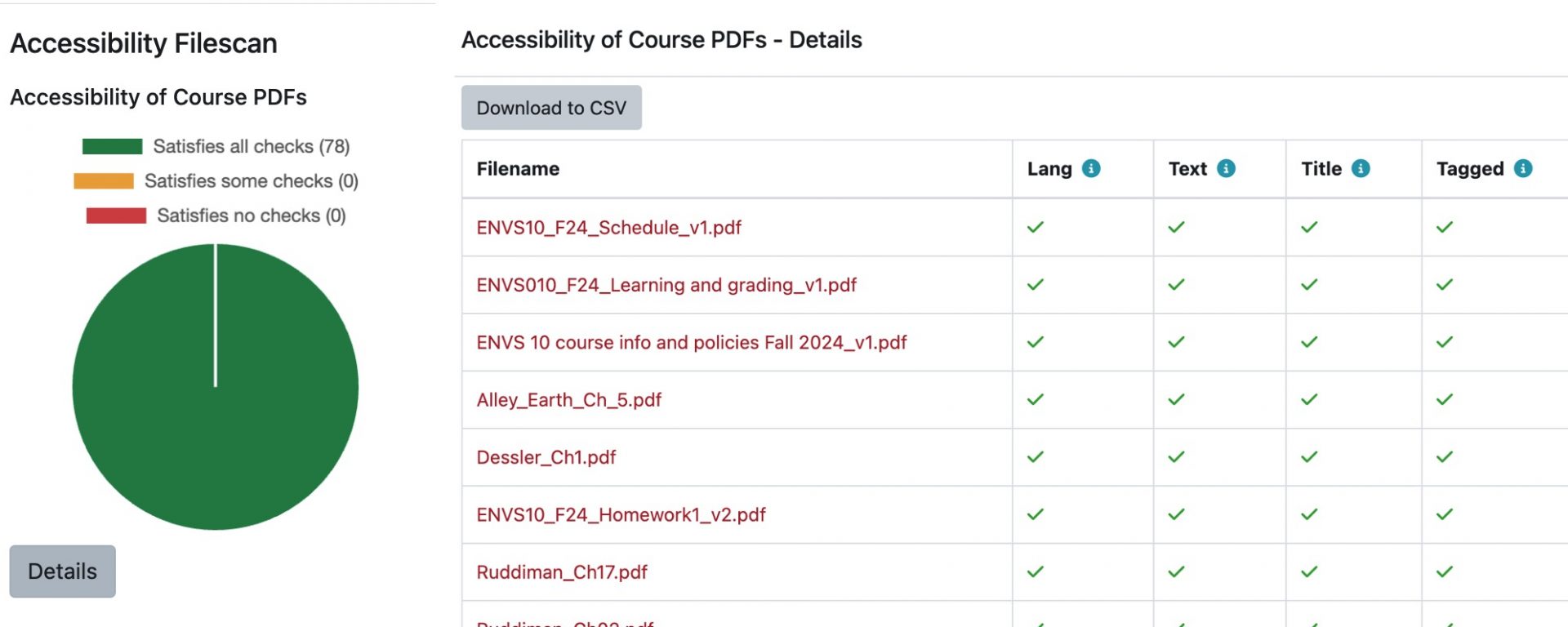Our faculty and staff have made remarkable progress in improving the accessibility of course materials since prioritizing digital accessibility in 2016. A pivotal tool in this journey has been the Accessibility Filescan, developed by Swarthmore ITS and introduced in Fall 2017. This tool is currently available to faculty teaching courses on Moodle.
When the tool was first implemented in 2017, less than 3% of the 14,000 PDFs on Moodle met all accessibility criteria, and no courses had fully-accessible documents. By Fall 2024, we achieved a significant improvement, with over 7% (approximately 1,400 PDFs) meeting all accessibility checks of the tool. This steady progress is reflected across multiple criteria:
| Accessibility File Scan Criteria | F2017 | F2024 |
| Text-based PDFs | 76.87% | 88.58% |
| PDFs with language specified | 7.82% | 20.86% |
| PDFs with titles | 43.31% | 46.6% |
| PDFs with tags (structure) | 9.94% | 23.10% |
| PDFs meeting all criteria | 2.8% | 7.4% |
For the first time, some courses now feature fully-accessible materials. Faculty have adopted better practices, with syllabi demonstrating fewer errors, consistent headings, effective list formatting, and improved organizational flow. Notably, we recently celebrated a milestone: our first syllabus to pass all automated accessibility tests, and a second quickly followed the first—a remarkable achievement!
Faculty Not Using Moodle
As a faculty member, if you do not use Moodle for your courses, you can still take advantage of the Accessibility Filescan. Please reach out to your designated Academic Technologist and ask them how.
Learn More About Accessibility
If you want to learn more about accessibility and how to check and create accessible materials please visit our Accessibility Knowledge Base.

